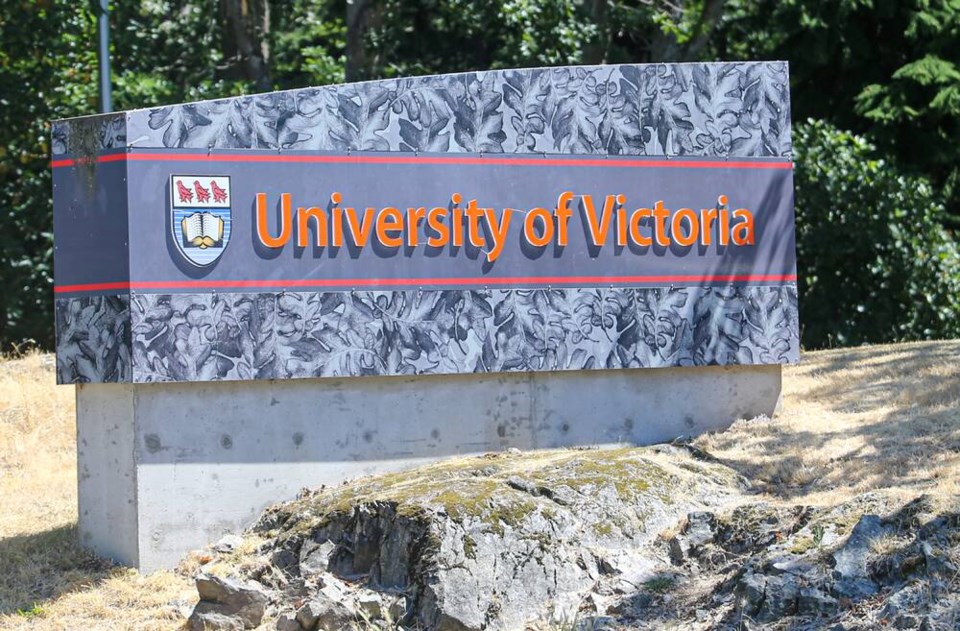The University of Victoria is set to deliver the world’s first custom master’s degree in business administration in Indigenous reconciliation.
Developed in partnership with the B.C. Association of Aboriginal Friendship Centres, the MBA was unveiled on July 8 as part of an $8.4-million funding announcement by the Ministry of Social Development and Poverty Reduction that will “create an action framework to integrate reconciliation into community social services,” according to a statement from UVic.
“This MBA will equip leaders in social services, government and non-profits to meaningfully advance reconciliation in their organizations and across our broader society,” said Saul Klein, dean of the Gustavson School of Business.
Leslie Varley, executive director of the B.C. Association of Aboriginal Friendship Centres, said the social services sector made a commitment to reconciliation as their “top priority” and offered her the opportunity to identify actions that would “start us down that path toward reconciliation.”
After the province invited Varley to submit a proposal to help build and maintain capacity within the social services sector, she suggested creating an Indigenous-focused, not-for-profit-focused master’s in business administration for Indigenous leaders. It was presented to six universities and UVic ultimately came out in front because of the work it’s been doing towards reconciliation, said Varley.
In 2021, the university appointed Qwul’sih’yah’maht Robina Thomas as UVic’s first vice-president Indigenous, and the new MBA program follows UVic’s Indigenous language revitalization education and the university’s joint degree in Indigenous legal orders and Canadian common law.
By customizing the MBA so that it’s specific to the non-profit and Indigenous sectors, Varley said, it develops future Indigenous leaders.
Many executive directors who work at the 25 friendship centres across the province are preparing to retire, including Varley.
The program follows a “closed-enrolment model,” meaning students will be selected by a committee of executive directors working in the not-for-profit sector, said Varley.
Anyone who’s working in an Indigenous not-for-profit organization is encouraged to apply. Priority will be given to Indigenous applicants, as well as people of colour.
There is currently funding for two cohorts, for a total of 50 seats. The first cohort is slated to start in February 2023, said Varley.
The MBA is open to applicants who may not have the prerequisites universities often require, she said.
“They don’t have to have done their colonial academic push-ups in order to get into this MBA program,” Varley said.
Nuu-chah-nulth Tribal Council president Judith Sayers said the MBA sounds like a “good initiative” for the B.C. Association of Aboriginal Friendship Centres, “but the title is misleading.”
“If I was going to design an MBA on reconciliation, I would want to open it to everyone,” Sayers said. “And not just [make] an exclusive degree for one organization … the optics are really bad.”
Sayers said she isn’t opposed to First Nations organizations approaching UVic to help them “design a program specifically for their organization.”
“But if they’re really wanting to do an MBA on reconciliation, I thought it would be better to open it to everybody,” she said.



